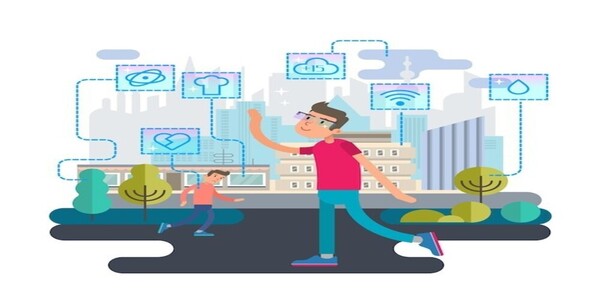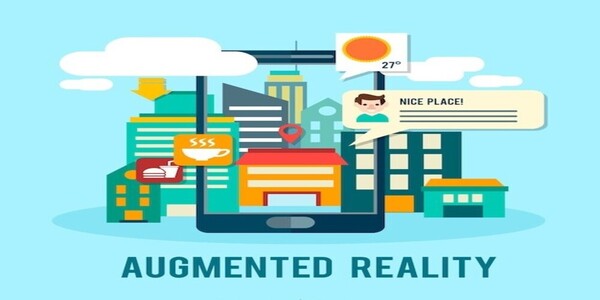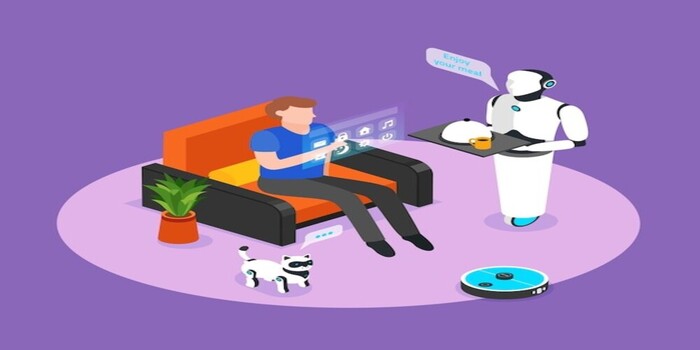
Gone are the days when hospitality industry depended upon paper and pen to manage guest’s reservations, orders and providing customer service! With striking advancements in technology taking over almost every aspect of our lives, it is no surprise that hospitality industry has also embraced the effects of technology revolution. From hotel management solutions aimed at improving operational efficiency to high end restaurant reservation systems – all are powered by cutting-edge technologies for a seamless guest experience. Consequently, the owner and investors now have access to real-time data which helps them make better decisions to strengthen their operations. In this blog post, we’ll explore how technology significantly impacted the hospitality industry with relevance towards discussions related economics, travel trends.
Table of Contents
How Technology is Transforming the Hospitality Industry

Technology has brought about significant changes in the hospitality industry, transforming the way businesses in this sector operate, and how they interact with customers. Here are some ways in which technology has impacted the hospitality industry:
- Online bookings: With the advent of online booking systems, customers can now make reservations online, eliminating the need to call or physically visit a hotel. This convenience has not only made it easier for customers to make bookings, but it has also enabled hotels to keep track of their inventory.
- Mobile applications: Many hotels and restaurants now offer mobile applications that enable customers to access their services easily. This can range from booking rooms and tables to accessing menus, ordering food, and making payments.
- Social media: Social media has become a powerful marketing tool for the hospitality industry, allowing businesses to reach a wider audience and promote their services. Social media platforms such as Facebook, Twitter, and Instagram can be used to engage with customers, provide updates on promotions and offers, and solicit feedback.
- Automation: Automation has been introduced in various aspects of the hospitality industry, such as check-ins and checkouts, room service, and even housekeeping. This has reduced the workload for staff, improved efficiency and accuracy, and increased customer satisfaction.
- Personalization: Technology has made it possible to personalize the guest experience by collecting and analyzing data on customer preferences, behavior, and history. This enables hotels to provide customized recommendations, offers, and services tailored to individual customers.
- Virtual reality: Virtual reality technology has been used to enhance the guest experience by allowing customers to virtually tour hotels and restaurants before making a booking.
- Sustainability: Technology has also been used to promote sustainability in the hospitality industry. Hotels and restaurants are increasingly using energy-efficient appliances, recycling waste, and reducing water consumption, among other initiatives.
The Benefits of Automation and Personalization in Hospitality Industry

Automation and personalization are two important trends in the hospitality industry that have numerous benefits for businesses and customers alike.
Benefits of Automation in the Hospitality Industry:
- Increased efficiency: Automation streamlines many aspects of hotel operations, from check-in to housekeeping, reducing the workload for staff and increasing efficiency.
- Reduced costs: Automation can reduce labor costs and increase productivity, allowing hotels to allocate resources more efficiently.
- Improved accuracy: Automation minimizes the risk of human error, reducing the likelihood of mistakes in areas such as room allocation and billing.
- Enhanced guest experience: Automation can improve the guest experience by providing faster and more accurate service, reducing wait times and enhancing convenience.
Benefits of Personalization in the Hospitality Industry:
- Improved guest satisfaction: Personalization allows hotels to tailor services and offers to individual guests, improving their overall experience and satisfaction.
- Increased loyalty: Personalization can build strong relationships with guests, leading to increased loyalty and repeat business.
- Higher revenue: Personalization can lead to increased revenue by encouraging guests to spend more on upgrades and additional services.
- Enhanced marketing: Personalization enables hotels to target marketing efforts more effectively, promoting relevant offers and services to the right customers.
- Competitive advantage: Personalization can differentiate a hotel from its competitors, providing a unique selling point that can attract and retain guests.
In conclusion, automation and personalization have numerous benefits for the hospitality industry. Automation can increase efficiency, reduce costs, improve accuracy, and enhance the guest experience, while personalization can improve guest satisfaction, increase loyalty, generate higher revenue, enhance marketing, and provide a competitive advantage. By embracing these trends, hotels can remain competitive in an ever-changing market and provide a superior experience for their guests.
Exploring the Use of Virtual Reality in Hospitality Industry

Virtual Reality (VR) is a technology that is increasingly being used in the hospitality industry to enhance the guest experience. VR technology allows guests to experience a virtual version of the hotel or resort, providing a unique and immersive experience. Here are some ways in which virtual reality is being used in the hospitality industry:
- Virtual tours: Virtual reality can be used to create virtual tours of hotels, allowing guests to explore the property and its amenities before booking. This can help guests make more informed decisions and increase their confidence in their booking.
- Event planning: VR technology can be used for event planning, allowing event planners to visualize the space and make decisions about layout and decor before the event takes place. This can save time and money and lead to more successful events.
- Training: Virtual reality can be used for employee training, allowing staff to practice scenarios in a safe and controlled environment. This can help staff to develop their skills and confidence and improve their performance.
- Room design: VR technology can be used to design and showcase room designs and layouts, allowing guests to customize their experience and preview the space before their arrival.
- Virtual concierge: Virtual reality can be used to provide guests with a virtual concierge service, allowing them to access information about the hotel, nearby attractions, and other useful information. This can enhance the guest experience and provide personalized recommendations.
- Entertainment: VR technology can be used to provide entertainment for guests, such as virtual reality games or immersive experiences.
In conclusion, virtual reality technology has numerous applications in the hospitality industry. By using VR technology, hotels and resorts can provide guests with a unique and immersive experience, improve their decision-making, save time and money, and enhance employee training.
Leveraging Augmented Reality to Enhance Hotel Experiences

Augmented Reality (AR) is a technology that can enhance the guest experience in the hospitality industry by adding digital elements to the physical world. Here are some ways in which hotels can leverage augmented reality to enhance their guest experiences:
- Virtual tours: AR technology can be used to create virtual tours of hotels, allowing guests to explore the property and its amenities in a unique and interactive way.
- Room design: AR technology can be used to showcase room designs and layouts, allowing guests to visualize and customize their room before their arrival. This can increase their satisfaction and confidence in their booking.
- Concierge services: AR technology can be used to provide guests with virtual concierge services, such as directions to nearby attractions, restaurant recommendations, and other useful information. This can improve the guest experience and provide personalized recommendations.
- Interactive maps: AR technology can be used to create interactive maps of the hotel and surrounding area, providing guests with a unique and interactive way to navigate the property and its surroundings.
- Event planning: AR technology can be used for event planning, allowing event planners to visualize the space and make decisions about layout and decor before the event takes place. This can save time and money and lead to more successful events.
- Interactive marketing: AR technology can be used for interactive marketing, allowing hotels to provide guests with unique and engaging marketing experiences that can increase their loyalty and satisfaction.
In conclusion, augmented reality technology has numerous applications in the hospitality industry. By using AR technology, hotels can provide guests with a unique and interactive experience, improve their decision-making, save time, and enhance guest experience. The use of augmented reality is a growing trend in the hospitality industry and likely to continue to grow in popularity in the coming years.
Artificial Intelligence and Chatbots in Hospitality Industry

Artificial Intelligence (AI) and Chatbots are transforming the hospitality industry by providing personalized and efficient services to guests. Here are some ways in which AI and chatbots are being used in the hospitality industry:
- Chatbots for customer service: Chatbots can provide 24/7 customer service, answering guest inquiries and providing information about the hotel, its amenities, and nearby attractions. This can improve the guest experience by providing prompt and accurate information.
- Personalization: AI can be used to analyze guest data and preferences, allowing hotels to personalize their services and offers to individual guests. This can improve the guest experience and increase loyalty.
- Predictive analytics: AI can be used for predictive analytics, allowing hotels to anticipate guest needs and preferences and provide personalized recommendations and services.
- Revenue management: AI can be used for revenue management, analyzing data on room occupancy, rates, and demand to optimize pricing and increase revenue.
- Housekeeping and maintenance: AI can be used to monitor room occupancy and schedule housekeeping and maintenance services more efficiently, reducing wait times and improving guest satisfaction.
- Food and beverage: AI can be used to analyze guest preferences and recommend menu items, and to manage inventory and reduce waste.
In conclusion, AI and chatbots are transforming the hospitality industry by providing personalized and efficient services to guests. By using AI and chatbots, hotels can improve the guest experience, increase revenue, and reduce costs. The use of AI and chatbots is a growing trend in the hospitality industry and is likely to continue to grow in popularity in the coming years.
Utilizing Robotics for Room Service & Other Tasks

Robotics is an emerging technology that is being utilized in the hospitality industry to automate tasks such as room service and cleaning, reducing labor costs and improving efficiency. Here are some ways in which robotics is being used in the hospitality industry:
- Room service: Robots can be used to deliver food, drinks, and other amenities to guest rooms, reducing the need for human staff and increasing efficiency.
- Cleaning and maintenance: Robots can be used for cleaning and maintenance tasks, such as vacuuming, dusting, and mopping, reducing the need for human staff and improving the cleanliness of the hotel.
- Guest services: Robots can be used for guest services, such as providing directions, answering questions, and providing information about the hotel and its amenities. This can provide guests with a unique and engaging experience.
- Security: Robots can be used for security purposes, such as patrolling the hotel and monitoring for suspicious activity, improving safety and reducing the need for human security staff.
- Inventory management: Robots can be used for inventory management, such as restocking minibars and tracking inventory levels, reducing the need for human staff and improving accuracy.
- Concierge services: Robots can be used for concierge services, such as providing recommendations for local attractions and activities, enhancing the guest experience and providing personalized recommendations.
In conclusion, robotics is an emerging technology that is being utilized in the hospitality industry to automate tasks such as room service and cleaning, reducing labor costs and improving efficiency. By using robotics, hotels can improve the guest experience, reduce costs, and improve safety and security. The use of robotics is a growing trend in the hospitality industry and is likely to continue to grow in popularity in the coming years.
In Conclusion
By utilizing technology like automation, personalization, virtual reality, augmented reality, artificial intelligence and robotics, the hospitality industry can provide guests with truly unique experiences. Automation allows hotels to better anticipate and meet guest needs, while virtual and augmented reality can give guests a real-time view of the destinations they visit. AI chatbots can be used to answer common customer questions and simplify interactions across web, mobile and voice platforms. Robotics are also used in hotel environments for handling items such as room service orders or performing other tasks that traditionally require human labor. By embracing emerging technologies, the hospitality industry will continue to evolve and become increasingly competitive as each hotel strives to outdo the rest in offering unforgettable experiences.
FAQs
1. How has technology revolutionized the hospitality industry?
Technology has revolutionized the hospitality industry in numerous ways, including the ability to streamline operations, enhance customer experiences, and improve overall efficiency.
What are some examples of technology being used in the hospitality industry?
Examples of technology being used in the hospitality industry include mobile check-in and check-out, digital room keys, mobile payments, in-room automation, artificial intelligence (AI) chatbots, and smart hotel rooms.
How has technology improved the customer experience in the hospitality industry?
Technology has improved the customer experience in the hospitality industry by providing more personalized service, allowing for faster check-in and check-out, offering mobile room service ordering, and providing guests with the ability to control their room temperature, lighting, and entertainment preferences.
How has technology helped businesses in the hospitality industry?
Technology has helped businesses in the hospitality industry by reducing operational costs, increasing efficiency, and enabling more effective marketing and guest communication.
What are some of the challenges that come with implementing technology in the hospitality industry?
Some of the challenges that come with implementing technology in the hospitality industry include the initial cost of investment, the need for staff training, and ensuring that the technology is compatible with existing systems.
